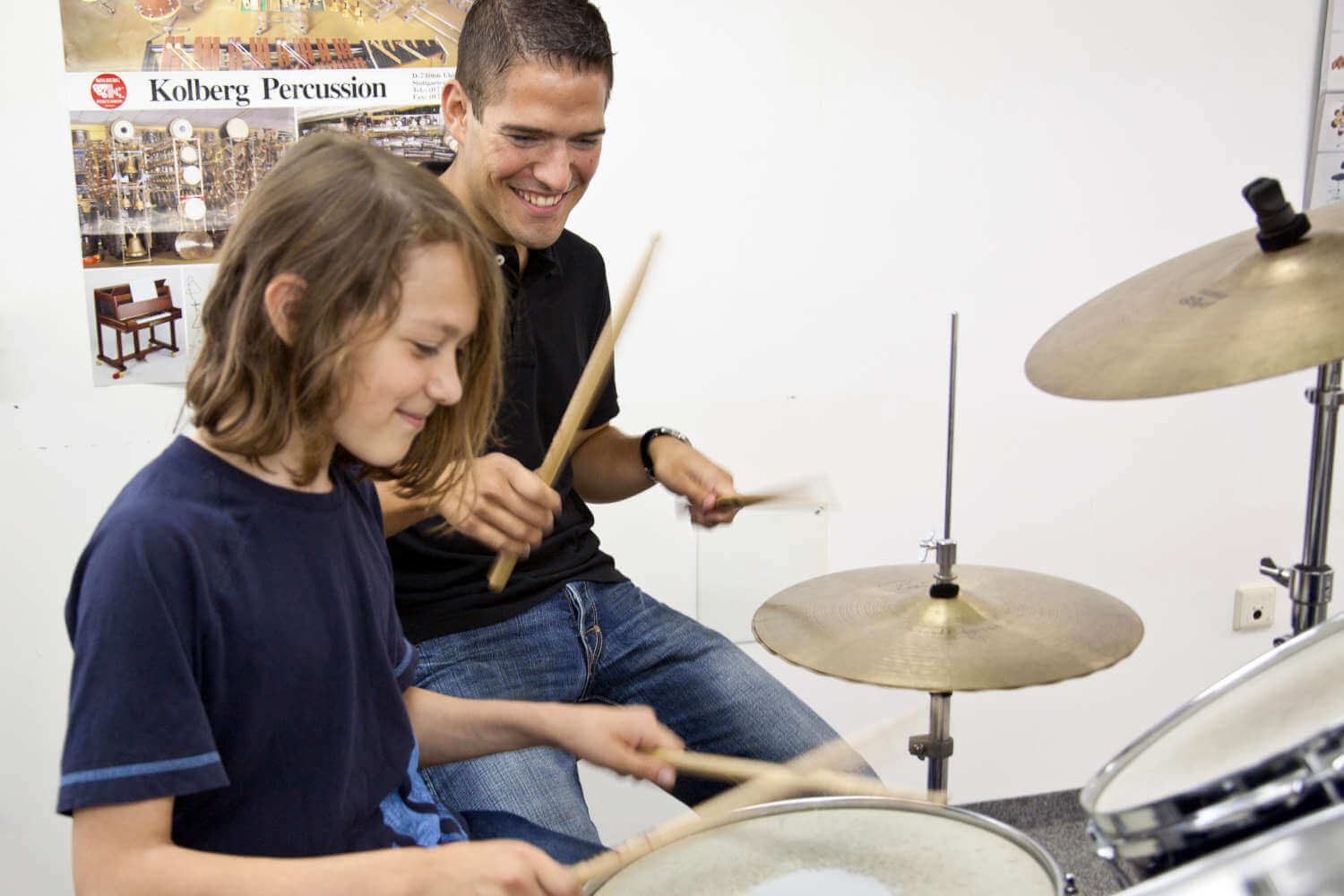What is the ideal age to start learning drums?
It depends on whether you want to start with the basics of snare drumming or jump straight into a small children's drum set. For children between the ages of five and seven, I've had good experiences with group lessons, which we call "Trommelissimo". For individual lessons, I've found that starting from around the 3rd grade is best, but of course there are always exceptions.
Is it necessary to learn to read sheet music?
In my opinion, music is very much like a language, and the goal should always be to achieve proficiency in three areas: "Speaking - Reading - Writing", which in music means "Playing - Reading - Writing/Improvising". With this approach, lessons can be flexible, and it's possible to get by without classical sheet music at first.
Children can learn very quickly with the help of rhythmic speech. But the amazing thing is that sometimes children can already play drum rhythms by following notation, even before they learn to read in school, because the notation of rhythms is so logical and self-explanatory.
Are there instruments that are played in a similar manner?
There are roughly three categories of percussion instruments: those that are played directly with the hands, such as all sorts of skin drums like Congas, Bongos etc. ), those that are played indirectly with the hands, such as tambourines and marching cymbals; and those that are struck with a mallet, which make up the majority of the instrumentarium.
What physical abilities are beneficial?
In this case, motor skills would be emphasized. In my experience, students who participate in sports alongside playing music tend to perform better. However, depending on the style of music, playing percussion can also be physically demanding.
How can you tell if you are ready to start playing percussion?
If you find yourself unable to sit still when music is playing, then you may be ready to start playing percussion.
FINANCIAL
How much does the instrument cost?
Compared to other instruments, starting with the drums is relatively inexpensive, provided you can manage with just a snare drum and a pair of sticks (around €150). For a few hundred euros, you can buy a complete drum set at the entry-level. The range of instruments available is limitless, with new and different cymbals, tom-toms, and sticks or mallets continually becoming available.
Over time, you can expand your drum set with additional items like more tom-toms, different cymbals, and even a double-foot machine for two bass drums. Fortunately, more and more children are becoming interested in melody instruments such as xylophones, glockenspiels, vibraphones, and marimbas. With the latter, the professional models can cost as much as a small car.
Are there any other costs?
The upkeep costs are low, provided you take good care of your equipment. You can tune the instruments yourself, and you should not hesitate to do it! Of course, you can invest profitably in mallets, which are a significant part of the sound. Many instructors, including myself, have a whole travel case of sticks and mallets at home. But even an advanced student who plays in the school orchestra and a music club should have at least a small bag with their basic equipment.
How time-consuming is maintenance?
Our instruments do not require a complete overhaul at regular intervals. In my experience, the most significant wear and tear results from improper transport and less from actual playing. Sometimes, the hardware (like the stand) fails, and a screw may no longer grip tightly. In such cases, you should take remedial action.
How is the instrument transported?
You must always disassemble the instruments and store them in professional bags and cases. If necessary, wrap them in enough blankets and towels so that they are protected and cannot bang against each other during transport. Under no circumstances should you place instruments or parts in the trunk of a car.

